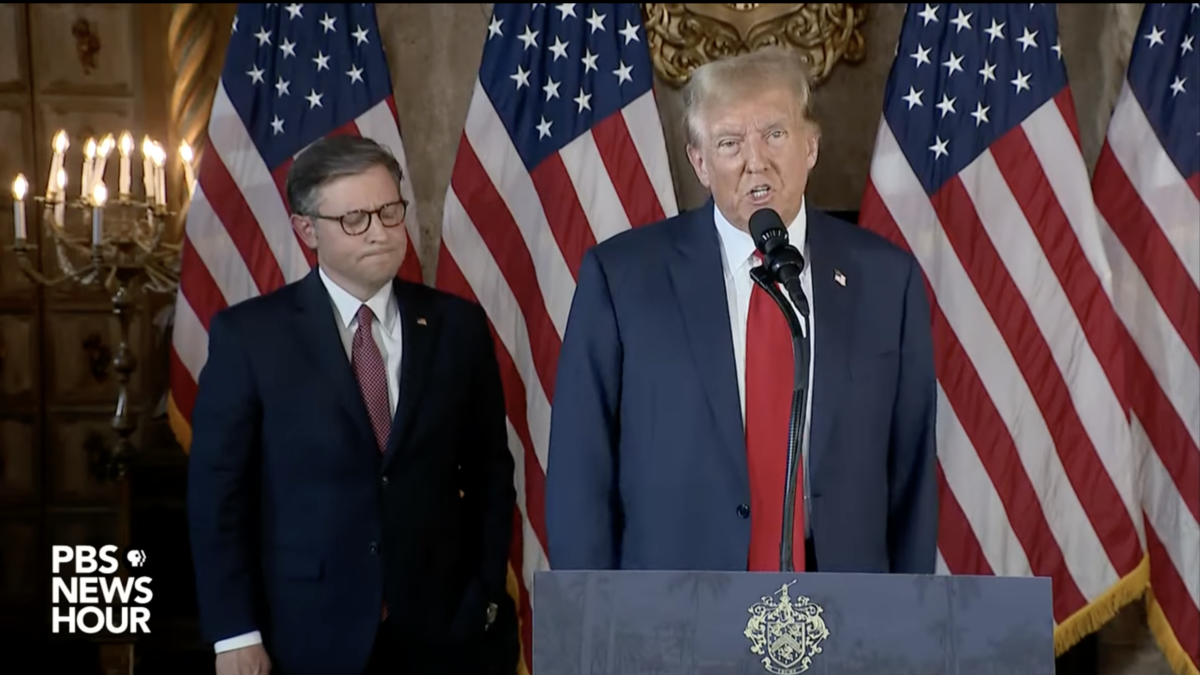
‘Tis the season to face down the chubby, flying angel-babies armed with bows and arrows; to indulge in high-calorie confections of cocoa and sugar; and browse over Groupon ads for outrageously discounted diamonds.
Like many women, I started caring about romance and marriage at a young age. My friends and I would chant the little rhyming ditty at each other, whenever we discovered or imagined a grade-school crush: “Jessica and Whomever, sittin’ in a tree, K-I-S-S-I-N-G. First comes love. Then comes marriage. Then comes Some-Other-Hapless-Random-Kid in the baby carriage.” Kids would laugh. Kids would blush. Some would cry or loudly deny the accusation.
Now that I have recycled my 29th birthday a few times and face yet another single Valentine’s Day—I feel qualified to muse about what some singletons think about romance and marriage. Working, as I do, in conservative, Christian circles that advocate for the protection and promotion of marriage, I’m also quite reminded that this pre-Valentine’s Day week has been designated “National Marriage Week.” Its goals are “1) To elevate marriage as a national issue in the media and with policy leaders. 2) To promote the benefits of marriage, that stronger marriages bring economic stability to individuals and to the nation, and provides the best environment for thriving children. 3) To create a national calendar for existing, trusted marriage classes, conferences and events where people can find the help they need, or reach out to help others.”
Happy National Marriage Week, Married Friends
Women in my circles tend to joke about Singles Awareness Day (S.A.D.) “coincidentally” falling on February 14. We are tempted to dress in drab sweatpants, pop in an outrageously schmaltzy romantic comedy, and, if we’re feeling especially daring, create an indoor bonfire—into which we might throw all the disappointing little reminders of relationships lost and hearts bruised. (If you have no idea what I’m talking about, check out “Friends” Season 1, Episode 14.)
These little romantic traditions and counter-traditions illustrate a growing, pressurized conflict between the marriage haves and have-nots. The evidence suggests that marriage rates are falling significantly. Studies show that the marriage or “mating market” is profoundly gender-imbalanced, competitive, and confusing. The complexities and dramas of the DC dating scene make the feature pages of Washington Post Magazine under the humorously earnest (though hardly inaccurate) title of “Profiles in Courage.” Some of us keep a small portfolio of hilarious, personal, and sometimes painful stories dating stories close to our chests—hoping that we’ll one day get to regale our kids with what happened before we met their fathers (or mothers).
We go to movies that foretell a future of mediated, digitalized friendships and romances, futures full of a loneliness, confusion, and detachment that is already familiar and palpable. Some pay for an “invisible boyfriend”—a manufactured digital relationship to ward off the awkward, if well-intended, inquiries that family and friends make into our dating experience.
But while a majority of singles still expect and desire marriage we’re well aware that far too many marriages end in divorce. In spite of all this mess, I am writing to wish the world within the reach of my pen a happy National Marriage Week and invite my single friends to share in the sentiment. Here’s why.
Marriage Doesn’t Make Anyone Superior
Marriage status does not convey greater worth, dignity, or value upon an individual, than does the single status. I suspect that critics of conservative, Christian marriage proponents think they hear “I’m a superior human being because I’ve managed to tie the knot (and keep it tied.)” Any researcher or communicator who actually insinuates or functionally believes such things, in my opinion, should be ashamed and choose another line of work. But most of the wonks and advocates I know believe that a Creator endows human value—that this worth isn’t self-generated, let alone conveyed by the U.S. Census Bureau or a justice of the peace. With all due respect, then, to Dean Martin and his fellow crooners, “You’re Nobody till Somebody Loves You” misrepresents the human experience.
You’re still “somebody,” even if no one’s bringing you flowers, helping you pay the bills, rubbing your feet, or offering a myriad of other attentions. Regardless of our political commitments or relational status, I hope we generally can agree that humans are wired for love and we’re meant for community (and many of us are also designed for marriage) but that we are valuable beings even if those needs and preferences aren’t being met.
Lately, our public conversations seem to be full of disagreement and criticism over “privilege”—as if wealth of mind, status, social mobility, capital, or skin pigmentation is something that must divide us and privilege is a sort of baggage that one should be ashamed of and seek to get rid of. Living as a responsible, empathetic member of a community requires us to examine our blind spots. But marriage, in the purest sense of the word, is a “privilege”—an asset, a blessing, and a gift. It’s not been given to a class of superior human beings—leaving the others to roll around like a bunch of spare tires.
Marriage Is Fundamental to the Human Story
Marriage has always been a part of our story, even if we’re not married. Marriage has always been a primary, fundamental way by which we structure and prioritize human relationships. It is an idea and institution that has existed as long as man and woman have existed on the earth. Its significance and structure did not originate with us—but has still been relevant for (and publicly valued and supported by) even the most secular of cultures
Historians and philosophers have described how these small circles of responsibility (families, clans, tribes) or spheres of sovereignty serve as a buffer against collected, absolute power. Think about it. Many, perhaps even most, reading these words grew up in a home with a mother and a father who were legally, socially, and emotionally connected to each other. While home life will never have been perfect, it is better than setting the default at ward of the state, either in a group home or the foster-care system.
One of the key premises of adoption still seems to be that children who are unable to remain with the parents who brought them into existence will be best served by placement with another cohesive, stable and loving unit, one in which adults (one man, one woman) are married. In the absence of marriage, the state grows to fill the void. This state growth appears to be a net loss for all humans, married or single—not because government is inherently evil, but because it is limited and ill-equipped to provide the nurturing love of a mother or a father.
As politically contentious as the debate over marriage has become, it is indisputable that marriage is the best option for children, including for those children adopted by a couple composed of their non-biological parents.
But step away from the political debate and the language of social science research for a brief moment and talk to a young child who, through no fault of her own, is separated from one of her parents. Whether the separation is caused by divorce, death, or choice, is it humane or loving to tell her that her desire for relationship with both her mother and father is unnecessary, misdirected, and old-fashioned (let alone ignorant and bigoted)? Even when it’s not viewed as a covenantal commitment, marriage has always been the method by which we have codified and celebrated those family units. Is it not possible that marriage has brought benefits above and beyond the approbation given to its spouses?
Healthy Marriages Require Outside Support
Another reason singles might celebrate marriage is because married friends can benefit from their friendships. Government programs have been launched based on the premise that people outside a marriage can benefit the people inside the marriage. One of the critiques leveled from “singles-rights” advocates is that the “marriage class” is insular and exclusive. Frankly, I have found that criticism to be occasionally accurate. I have definitely felt the pain of losing friends to marriage—attending, or even standing up in their wedding only to become forgotten or irrelevant to their new life together. Few experiences are more painful or excluding than watching a crush or an ex-boyfriend (or an ex-spouse) stand at the front of a church and promise to love and cherish another woman—as long as they both shall live.
But, frequently, the honeymoon passes. The new couple realizes that while their lives have reoriented, the singletons they loved and cared for are still around and ready for friendship or help.
While promoting the goods of marriage, advocates should be cautious about pretending that marriage always makes the individuals involved better human beings. I’ve seen it, from the outside, but close-up. Marriage can be like fire, burning away the impurities of laziness, self-absorption, and self-love, idiosyncrasies and vices that seem innocuous or go undiscovered in the single state. We humans can make a mess of either marriage or singleness; we’re equal-opportunity destroyers. But the converse is also true: we humans can find beautiful opportunities to love, serve, and thrive, within the bonds of marriage or outside them.
Singleness notwithstanding, I can celebrate and support marriage by practicing the skills and cultivating the virtues that make marriages work. Communication, respect, humility, and self-denial, while vital for the happy marriage relationship, are not exclusively owned by “the married ones.” Such skills and virtues are also fostered in personal friendships, healthy work environments, active churches, and dynamic civic institutions. It seems unhelpful, at best, to hunker down into a camp of married or singles and engage in trench warfare over who brings more virtue to the table.
Healthy Marriages Benefit Society
On the whole, healthy marriages improve neighborhoods, reduce crime, and better our society. If anyone wishes to pay attention, he or she will find themselves swimming in social science literature that marriage supports and promotes all forms of social good. We’re still arguing (quite loudly) about how relevant marriage is to human thriving, the restoration of broken neighborhoods, the alleviation of poverty, and the strength of economic and social opportunity.
The political and policy arguments will not be solved overnight; the disagreements are deeply entrenched. But the conversations are important, and singles have no reason to shy away. Politics and policy are always—unavoidably—the personal brought to bear upon community decisions. Whether we like it or not, our personal relational decisions have public implications.
Before we slam each other’s relational status and decry each other’s “privilege” (or even map out each other’s likelihood to achieve happiness) let’s review the reality that, while made with unique traits and gifts, we’re individuals built for community. Single or married, we should be able to discuss and debate with civility whether a young mother should lose her temporary assistance for food and health care if she decides to marry her boyfriend—the father of her little child. Whether a family should, perhaps, be permitted to keep more of its income, in order to sponsor, protect, and provide for the new little citizens that they have brought into the world? Singles need not feel threatened or disenfranchised by these conversations.
Single people can and (in my opinion) should celebrate and affirm marriage. Singles can often attest that such a celebration from the outside of an institution is less than comfortable. But it also seems a sign of adulthood and emotional maturity to practice joy when another’s private blessing contributes to the common good.









